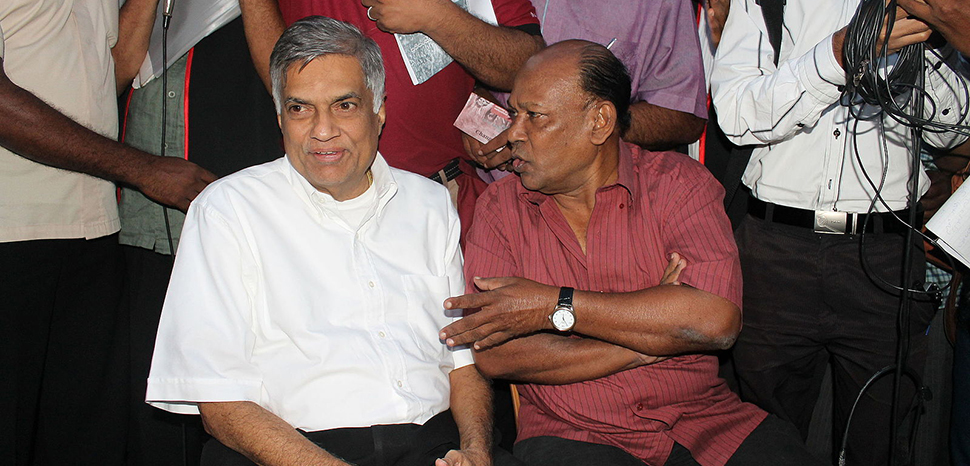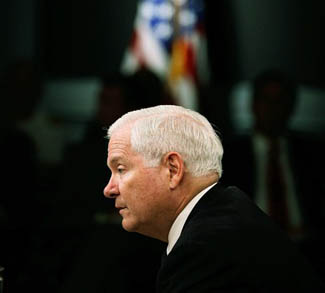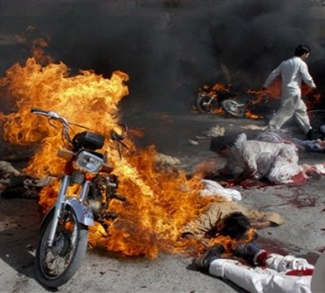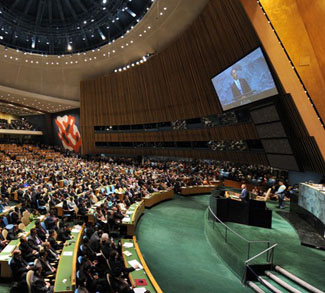An unprecedented people’s uprising in Sri Lanka last month led to the downfall of the corrupt and authoritarian Rajapaksa family, which had dominated the island for nearly two decades. But the victory proved fleeting and bittersweet. The appointment of Ranil Wickremesinghe – Gotabaya Rajapaksa’s chosen successor – by parliamentarians suggest that the demands of ordinary Sir Lankans will be unmet. Indeed, just hours after Wickremesinghe was sworn in, a state of emergency was declared, leading to a sweeping number of arrests and travel bans on prominent protesters. Security forces violently raided anti-government protest sites in Colombo and elsewhere, beating civilians, journalists, and lawyers, and destroying property. This suggests that the brutality and misdeeds of the previous dynasty may not stop anytime soon.
The ‘people’s struggle’ (janatha aragalaya) protests were triggered by widespread shortages of electricity, gas, fertilizer, food, and medicine. The lion’s share of the blame can be attributed to decades of bad economic policies, unchecked borrowing, corruption, militarization, and authoritarianism. These economic disparities were exemplified by protesters storming the presidential palace last month, revealing the opulence enjoyed by Sri Lanka’s rulers.
The seizure of ill-gotten cash and assets by the Rajapaksas and their allies has now become a key demand of the protest movement. Charges ranging from money-laundering, to arms dealing and embezzlement have been levelled at key members of the family and their allies over the years – but, to date, nothing has stuck.
There could scarcely be a more pro-Rajapaksa and illegitimate replacement than Ranil Wickremesinghe, a man who served as prime minister six times and has been dogged by allegations over his own probity, such as his role in a central bank bond scam in 2015 and torture camps in the late 1980s. Moreover, as an MP who lost his seat in the last election, he lacks political legitimacy. During his term as prime minister between 2015-2019, he did not pursue any sense of accountability for the Rajapaksas. His government reneged on its commitment to establish a special judicial mechanism with international participation to ensure accountability for war time atrocities, contained in a landmark UN Human Rights Council resolution in 2015.
Yet public opinion is changing, with demands for investigation into the crimes of the Rajapaksas begining to take hold.
For instance, over the past month, we have seen protesters holding aloft placards with faces of journalists and activists who were assassinated and forcibly disappeared, such as Lasantha Wickrematunge, Prageeth Ekneligoda, Lalith Kumar Weeraraj, and Kugan Muruganathan. There is also the 2012 Welikada prison massacre, the discovery of a 1980s mass grave connected to a Sinhalese insurgency, and even the 2019 Easter bombings. These cases share a common theme: all unresolved and with a strong suspicion of Rajapaksa regime involvement, especially Gotabaya.
The clamor for justice is being driven by many former Rajapaksa voters, who are mostly Sinhalese Buddhists. They had previously hailed the Rajapaksas as war heroes who saved the country from terrorism.
But the biggest challenge for truth and reconciliation will be gaining, and holding, support from the Sinhalese Buddhist majority in Sri Lanka to investigate and prosecute atrocities committed against the Tamils during the civil war. Though crimes were committed by successive governments and Tamil rebels during three decades of war, the Rajapaksas are widely held responsible by the UN and others for a bloodbath during its final phase. Holding them accountable means bringing some military personnel – considered by some Sinhalese as ‘war heroes’ – to justice. But never has there been a better time to challenge once untouchable institutions, and attitudes are shifting.
The UN, and leading Western nations, must support domestic and international pursuit of justice. Last year, the UNHRC passed a resolution on reconciliation, accountability, and human rights in Sri Lanka, mandating the collection and preservation of evidence for judicial proceedings. It must now strengthen this process and expand the mandate to include evidence-gathering for alleged financial crimes.
Our disgraced former-president, Gotabaya Rajapaksa, is now in hiding in Singapore. His brothers Mahinda (former president and prime minister) and Basil (former finance minister) may also skip town if the travel bans slapped on them by the Supreme Court are lifted. Foreign governments must refuse any asylum request from the Rajapaksa family and their allies, and support international efforts to bring them to justice for their crimes. In recent days, human rights groups and Tamil organizations have called on Singaporean authorities to hold Gotabaya to account, given his presence in their country.
Fundamentally, though, it is for the Sri Lankan government to pursue the Rajapaksas. There can be no endorsement or protection of the previous regime. One of the boldest steps any new administration must take is to ratify the Rome Statue, with retroactive effect. This would make Sri Lanka answerable to the jurisdiction of the International Criminal Court.
It owes this to ordinary Sri Lankans, who are suffering from a combination of internal and external failings. The island must confront its past if it is to have a future.
Ruki Fernando is a Sri Lankan human rights activist and consultant at the Centre for Society and Religion (CSR)
The views expressed in this article belong to the authors alone and do not necessarily reflect those of Geopoliticalmonitor.com




